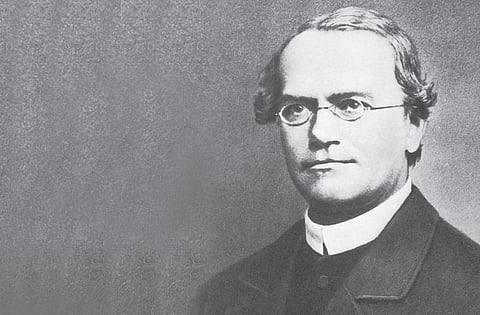

Gregor Mendel
Gregor Mendel, the father of genetics, was an Augustinian monk at St Thomas’s Abbey near Brunn (now Brno, in the Czech Republic), and studied natural sciences at the University of Vienna, Austria. His experiments showed that when two varieties of purebred plants cross-breed, the offspring resembled one or other parent, not a blend of the two, which then gave rise to a whole new branch of science - genetics.
Mendel was a part-time assistant teacher and carried out research in plant breeding where he grew around 10,000 pea plants between 1857 and 1864, for his experiments. Pea plants are hermaphroditic, (meaning they have both male and female sex cells and usually fertilise themselves). Mendel was able to cross-breed the plants by transferring pollen with a paintbrush.
He found that some traits are dominant and would always be expressed in a first-generation cross, while other, not-so-dominant traits could reappear in the subsequent generations if first-generation plants self-fertilise. Mendel hypothesised that parents contribute particulate substances to the offspring which determines their characteristics, these particles correspond to genes made of DNA. His work was largely ignored until the 1900s, when three scientists independently confirmed his work, but it was another 30 years before his conclusions were widely accepted.